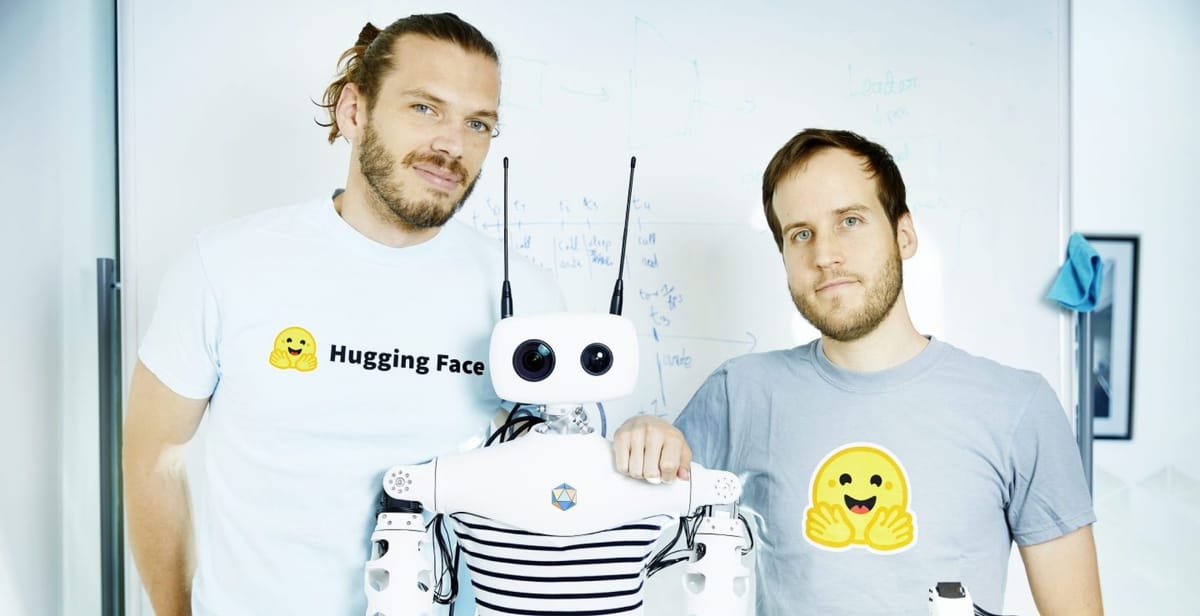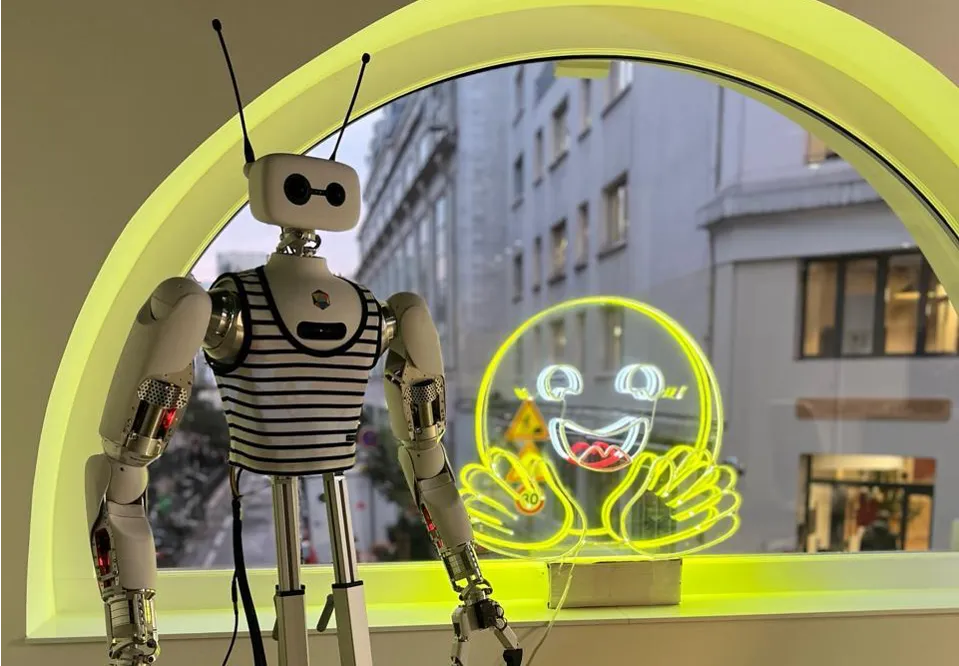
Hugging Face is going physical. The AI company known for its wildly popular open-source model hub has acquired Pollen Robotics, a French startup behind the open-source humanoid robot Reachy 2. Terms of the deal weren’t disclosed, but it marks Hugging Face’s first major move into selling hardware — and adds about 30 new employees to its team.
Key Points
- Deal brings Reachy 2, an open-source humanoid robot, into its lineup
- Signals Hugging Face’s move beyond software into AI-powered hardware
- Pollen’s team of ~30 will join Hugging Face to advance open robotics
Pollen Robotics, founded in 2016 and based in Bordeaux, had previously raised about €2.5 million ($2.8 million) in venture funding. Its flagship product, the $70,000 Reachy 2 humanoid robot, is already deployed in research labs at Cornell University and Carnegie Mellon University.
This acquisition continues Hugging Face's deliberate push into robotics that began last year. The company has been methodically building its robotics credentials by hiring Remi Cadene, a former Tesla Optimus robot researcher, launching the "LeRobot" open-source library, and partnering with The Robot Studio on an affordable $100 robotic arm.
Thomas Wolf, Hugging Face's co-founder and chief science officer emphasized that the open-source approach that has defined Hugging Face's AI model repository will be central to their robotics strategy as well.

The acquisition brings Pollen's approximately 20 employees into Hugging Face, including co-founders Matthieu Lapeyre and Pierre Rouanet. According to a company spokesperson, this makes it Hugging Face's largest acquisition in terms of headcount to date.
While Reachy 2's price tag puts it firmly in the research and development category for now, Hugging Face has made clear its intent to drive down costs significantly. Wolf even suggested the company eventually hopes to fully open-source the hardware designs, potentially allowing users to 3D print their own robot parts.
The timing of this acquisition coincides with growing interest in the intersection of physical robotics and advanced AI. Just last month, NVIDIA selected Hugging Face as its preferred platform for hosting its GR00T N1 open-source AI model designed specifically for humanoid robots.
Wolf's vision for open-source robotics isn't just about cost or convenience—it's also about safety. He argues that open-source software has proven more secure over time as more people can identify and fix vulnerabilities, citing a recent security flaw in Unitree's robot dog software as an example of risks in closed systems.
Rather than focusing on replacing human workers, Wolf predicts the first wave of humanoid robots will "interact in a fun and interesting way" with people, while simpler, affordable robot arms might handle household tasks like folding laundry.
This acquisition represents the fifth for Hugging Face, which has raised $395 million to date. The company, now nine years old, has evolved from a simple chat application to become the industry's go-to platform for open-source AI models and datasets.

